|
The
People's Grocery
... and Ida B.
Wells |
|
|
|
|
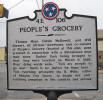 |
Prologue:
"Thomas Moss, Calvin McDowell, and Will Stewart, all
African-Americans and co-owners of People's
Grocery,
were arrested in connection with a disturbance near their store.
Rather than being brought to trial, they were lynched on March 9,
1892. Moss' dying words were, "Tell my people to go west --
there is no justice for them here." This lynching prompted
Ida B. Wells,
editor of
Memphis Free Speech to begin her anti-lynching campaign in
this country and abroad." |
|
|
|
|
|
|
|
For
sometime this website has wanted to do a page on Ida B. Wells, but
hundreds of very similar pages were already posed on the internet.
We needed something to set our page apart. That "something"
escaped us, until August 2014, when we noticed a photo for
sale on eBay advertised as a "Vintage Memphis horse and buggy
delivery." We didn't even look at the horse and buggy, because
the sign on the building in the background jumped out of the photo
... |
|
|
|
|
|
|
|
|
Click on small
photos to see an enlargement |
|
|
|
|
|
|
This
is the postcard photo found on eBay - August 2014
>
Ordinarily the photo of the horse and buggy delivering "Van
Buren Cigars" would have interested us. But we quickly
realized that this may be the only photo of the "People's
Grocery" which was located at the intersection of Mississippi
Blvd and Walker Avenue - an area known as "The curve" because
the streetcar line curved sharply at this intersection.
|
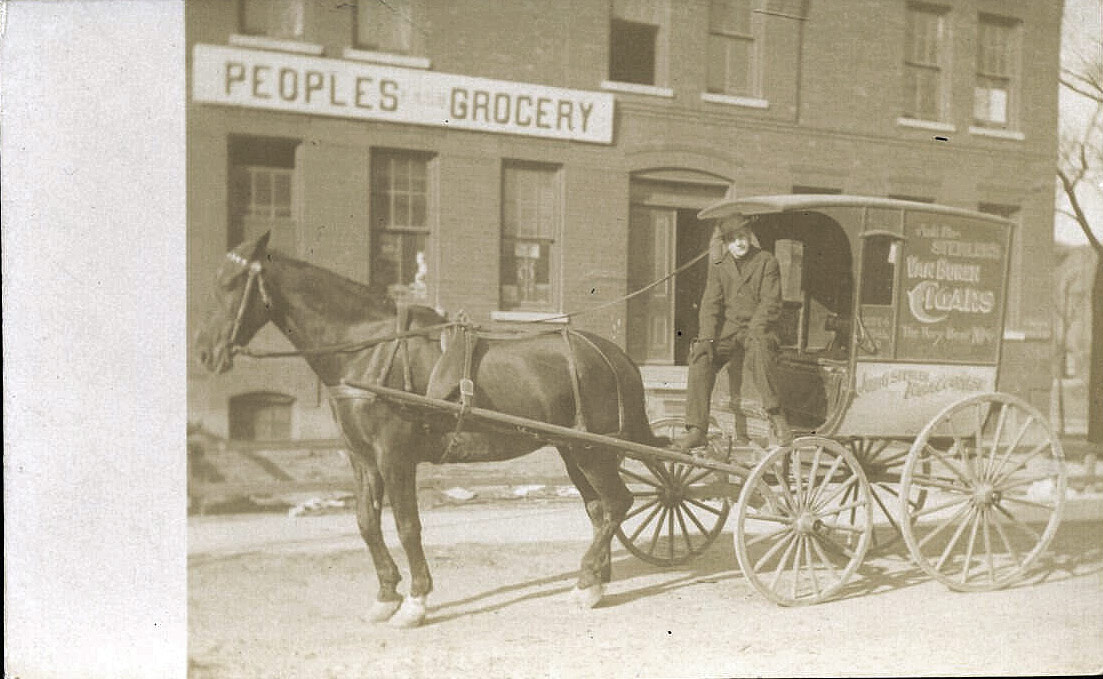 |
| |
Delivery by
horse and buggy... |
|
|
|
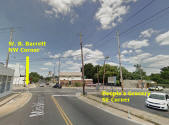 |
<
It was
here that Thomas Moss, Calvin McDowell, and Will Stewart opened
their People's Grocery - across the street from another grocery
owned by W. R. Barrett, who was white. The People's
Grocery's greatest crime was that it competed successfully
against the white store that once had a monopoly on the black
trade. The animosity from this competition led to another
violent face-off between the races in Memphis.
|
|
Grocery locations |
|
|
|
|
|
Briefly, this is reportedly what happened... |
|
One day
outside the People's Grocery, some colored and white boys quarreled
over a game of marbles, resulting in a boy's fight, which led to an
adult's fight. And the People's Grocery keepers were drawn
into the dispute. When it was over, a challenge was issued
that the whites were coming over Saturday night to clean our the
People's Grocery Company.
The
Grocery Company armed themselves to repel any attack. About 10
PM Saturday night, they saw several white men coming through the
rear door and immediately fired on them. Three white men were
wounded. |
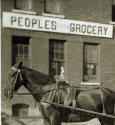 |
|
|
|
|
|
|
Sunday
morning's newspaper had headlines telling how officers of the law
had been wounded while in the discharge of their duties - calling
the People's Grocery "...a low dive in which drinking and gambling
were carried on ...and a resort of thieves and thugs". Over
100 colored men, including Moss, McDowell, and Stewart, were dragged
from their homes and jailed.
|
|
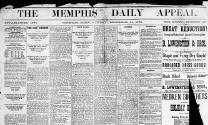 |
|
Memphis
Daily Appeal |
|
|
|
Crowds
began forming at the Jail. A mob broke into the jail and
took the three men outside. Moss reportedly begged
for his life, and when asked if he had any last words, replied
"Tell my people to go West - there is no justice for them here".
He was then fatally shot. McDowell reportedly got hold of
one of the lyncher's guns and refused to release it until a
bullet shattered his fist. Both he and Stewart were then
fatally shot and McDowell's eyes were gouged out.
The
bodies of Thomas Moss, Calvin McDowell, and Will Stewart were discovered in an
open field at dawn, partially covered by
brush. > |
|
 |
|
1892
Drawing of victims |
|
|
|
|
|
|
|
These three men
were interred in the old
Zion
Cemetery.
Only Moss's grave has been located, in an overgrown area of
other 1892 graves.
>
Activist Ida B. Wells was a close friend of Thomas Moss and was
God Mother to his young daughter. She was also friends
with the other two men. She began writing articles in her
newspaper denouncing this and all lynchings in the south.
|
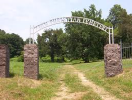 |
|
|
|
|
|
|
|
|
No one was ever charged for the
lynchings ... |
|
|
|
|
|
|
|
|
|
|
|
Mahendra Prasad writes:
"I've
been doing some historical research...on the People's Grocery
lynchings. I've found some interesting info on the exact
location of the lynchings ... attached is a write up of my
findings...for anyone who'd like to pursue it further..."
> |
 |
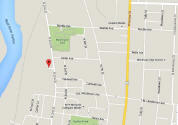 |
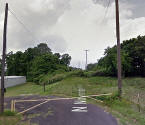 |
| |
M. Prasad paper |
Location Map |
Location - Today |
|
|
|
|
The
Memphis Directories below show the 1890, 91, 92 listings for
People's Grocery at Hernando and Walker Avenue. That section
of Hernando is now named Mississippi Blvd. All directory
listings for Barrett show his initials as W.
R.
Almost all of the articles below have his initials as W.
H.
... some even have his name as W. H.
Barnett
instead of Barrett. |
|
. |
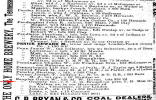 |
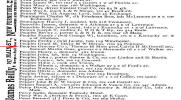 |
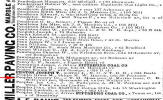 |
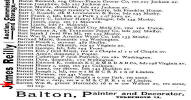 |
 |
 |
|
1890-91-92 Directory Listings for People's Grocery |
Barrett
Listing |
Wells - Moss
Family |
The Curve -
today |
|
|
|
|
Below are
a few of the hundreds of articles about this infamous Memphis
lynching. Each one varies a little but essentially they all
have about the same facts. The last one is the 1892 version
written by Ida B. Wells as she begins her anti-lynching campaign.
It is included in her auto-biography. |
|
|
 |
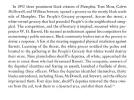 |
 |
 |
 |
 |
| 1999 |
2002 |
2006 |
2009 |
2010 |
2011 |
|
|
|
 |
 |
 |
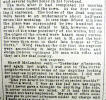 |
 |
 |
| 1892 |
1892 |
1892 |
1892 |
1892 |
Wells writing |
|
|
|
|
|
|
|
|
|
 |
Who is Ida B.
Wells?
Although she's virtually forgotten today, Ida B. Wells was once a
household name in Black America - especially during her
lifetime (1863-1931). She would have been the equal of
the well-known Booker T. Washington. |
| |
|
 |
Ida B. Wells, a daughter of slaves, was born in Holly
Springs, Mississippi, July 16, 1862. After the Civil
War, her father became a member of the board of trustees for
Rust College and this was where Wells received her early
schooling. She had to drop out at age 16 when tragedy
struck the family. Both of her parents and one of her
siblings died in a yellow fever outbreak, leaving Ida to
care for the others. She convinced a school
administrator that she was 18 and landed a job as a teacher.
In 1882, Wells moved with her sisters to Memphis to live
with an aunt. |
| Holly
Springs, MS |
|
|
|
|
|
|
1884
became a turning point in Ida's life. Buying a first-class train
ticket to Nashville, she was outraged when the conductor ordered
her to move to the car for African Americans. She refused
(Many years before Rosa Parks) and was forcibly removed from the
train. She sued the railroad, winning a $500 settlement in
court, but the decision was later overturned by the Tennessee
Supreme Court. |
|
|
|
|
|
|
|
The
"injustice" of Tennessee Supreme Court, prompted Ida B. Wells to
begin writing about issues of race and politics in the South.
Eventually she became a co-owner of the "Memphis Free Speech."
newspaper, where she began writing articles condemning
violence against blacks, poor schools, and the
failure of black people to fight for their rights.
While working as a journalist, she also held a position as a
teacher in a segregated Memphis public school - where she became
a vocal critic of the conditions of black-only schools. In
1891, she was fired for these attacks. |
 |
| |
Auto-biography |
|
|
|
 |
Ida
was friends with Thomas Moss, McDowell and Stewart. She
was the godmother to Moss' young daughter. The 1892 brutal
killings of her friends led her to write articles denouncing the
lynching - and the wrongful deaths of many other African
Americans. One editorial in particular, about black men
raping white women, pushed some of the city's whites over the
edge . A mob stormed the office of her newspaper and
destroyed all of the equipment.
Wells was traveling in New York City at the time and was warned
that she would be killed if she ever returned to Memphis.
She did not return. |
| |
|
|
|
|
 |
Wells relocated to Chicago and wrote in-depth reports on lynching
in America. Her anti-lyching campaign gained attention in
the northern states and in Great Britain, where she lectured.
in 1896 she founded the National Association of Colored Women.
By 1898 she brought her anti-lynching campaign to the White
House - although Congress never passed anti-lynching legislation.
In
1909 she helped found the NAACP. She had
married Ferdinand Barnett in 1898 and settled in Chicago.
The couple eventually had four children and Ida remained
committed to her social and political activism against racism.
She died of kidney disease in 1931, at the age of 69. |
| |
|
|
|
|
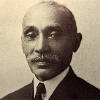 |
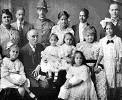 |
 |
 |
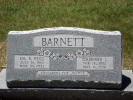 |
 |
| Husband F.
Barnett |
Extended
Barnett Family |
Ida and kids |
Barnett Home |
Barnett
Grave |
Wells Stamp |
|
|
|
|
|
|
|
|
|
|
|
|
|
|
|
Eventually, Ida B. Wells campaign led the Memphis newspapers
to denounce lynching. Local leaders discovered that the
national and international publicity drew unwanted attention
to the negative images of the city and was bad for business.
|
|
|
|
Ida B. Wells
Plaza and Statue
In 2021, Memphis honored Ida B. Wells with a statue and a
plaza named for her. The life-size bronze statue was
erected at the plaza in downtown Memphis next to where
Wells ran her newspaper inside the First Baptist Beale
Street Church. The official unveiling was July 16,
2021 and culminated a week-long celebration of Wells' life
and legacy. |
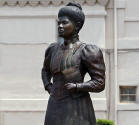 |
| |
|
|
|
|
|
|
|
|
|
|
|
 |
|
|
|
|
|
|
|
|
Credits |
|
|
|
The
Historic-Memphis website does not intentionally post copyrighted
photos and material without permission or credit.
On
occasion a "non-credited" photo might possibly be posted because we
were unable to find a name to give credit. Because of the nature of
our non-commercial, non-profit, educational website, we strongly
believe that these photos would be considered "Fair Use. We have
certainly made no monetary gain, although those using this website
for historic or Genealogy research have certainly profited. If by
chance,
we have posted your copyrighted photo, please contact us, and we'll
remove it immediately, or we'll add your credit if that's your
choice. In the past, we have found that many photographers
volunteer to have their works included on these pages and we'll
also do that if you contact us with a photo that fits a particular
page. |
|
|
|
The "Historic-Memphis" website would like to acknowledge and thank the
following for their contributions which helped make this website
possible:
Collier
County Museums, Woody Savage, Memphis
Public Library, Memphis University Library, Memphis Law Library,
Memphis Commercial Appeal, Memphis Press Scimitar, Shelby County
Register of Deeds, Memphis City Schools, Memphis Business Men's
Club, Memphis Chamber of Commerce, Memphis City Park Commission,
Memphis Film Commision, Carnival Memphis, Memphis Historical
Railroad Page, Memphis Heritage Inc, Beale Street Historic District,
Cobblestone Historic District, Memphis Historic Districts, Vance
Lauderdale Family Archives, Tennessee State Archives, Library of
Congress, Kemmons Wilson Family, Google Earth, Richard S. Brashier, Lee Askew,
George Whitworth, and many individuals whose assistance is
acknowledged on the pages of their contributions. Special
thanks to Memphis Realtor, Joe Spake, for giving us carte blanche
access to his outstanding collection of contemporary Memphis photos.
We do not have high definition copies of the photos on these
pages. If anyone wishes to secure high definition photos,
you'll have to contact the photographer or the collector.
(To avoid any possibility of contributing to SPAM, we do not
maintain a file of email addresses for anyone who contacts us). |
|
|
|
|
|
|
|
|
|
|
|
|
|
|
|
|
|
|
|
|
|
|
| |
|
|